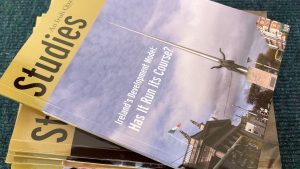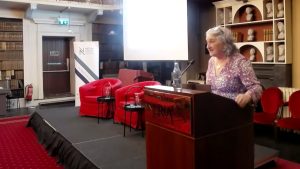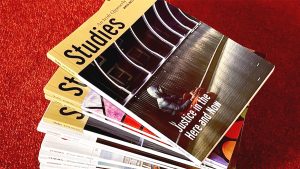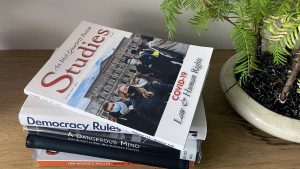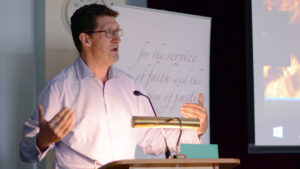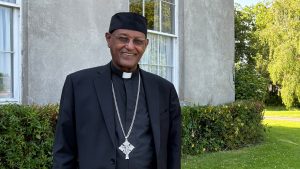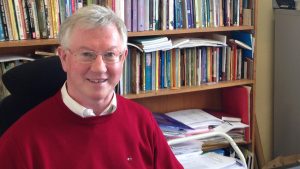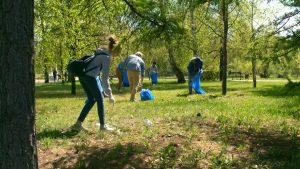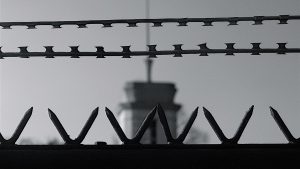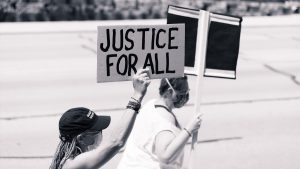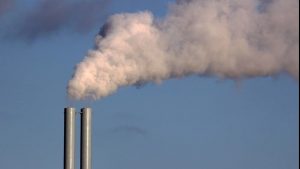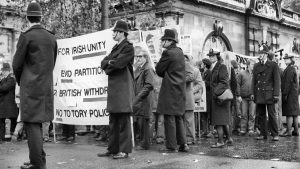Autumn issue of Studies: Climate justice and the university
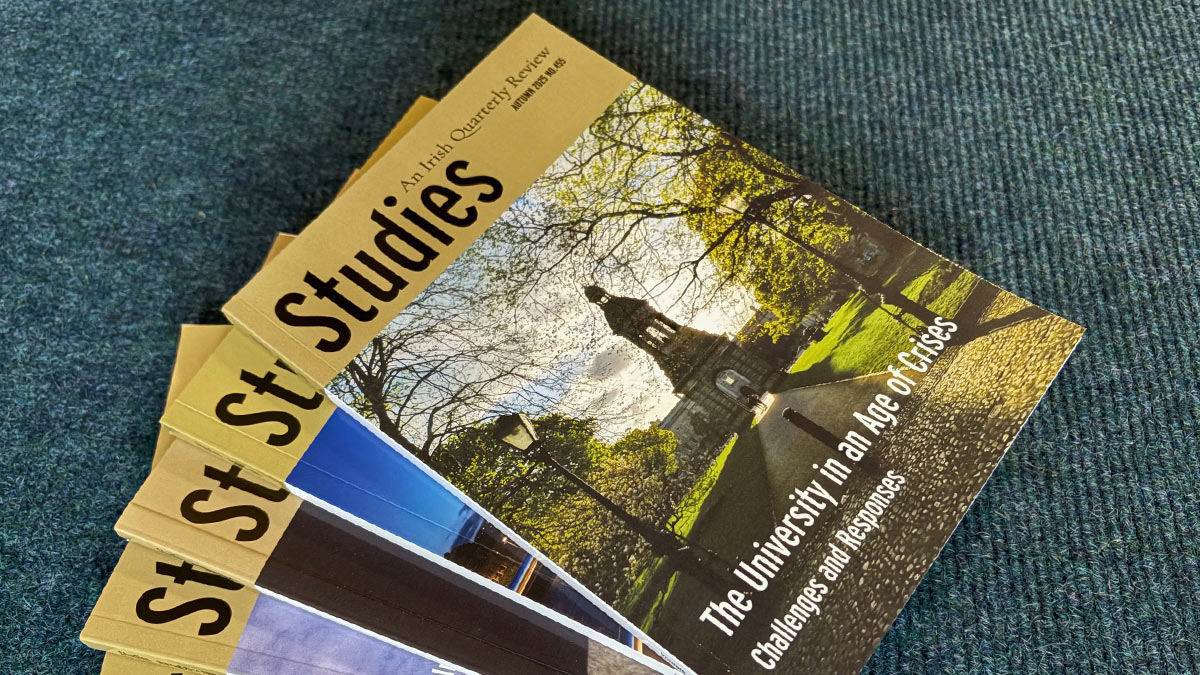
The autumn 2025 issue of Studies has as its leading theme the role of the university in helping societies to prepare for or to combat the increasingly critical threats facing them. Of the first importance in this is the climate crisis. Under the title ‘The University in an Age of Crisis: Challenges and Responses’, the opening set of essays relate to a recent publication by maynooth Professor of Climate Justice, Jennie Stephens. This work, Climate Justice and the University: Shaping a Hopeful Future for All (2024) responds admirably to the challenge of rethinking universities in the light of current realities.
In the opening essay, ‘The Case for Climate Justice Universities: Restructuring Higher Education for Transformative Change’, Stephens reprises the main arguments of her book. The essay is a bracing challenge to the university sector to galvanise its strength and influence in the interest of the public good, particularly by helping to move society along a path towards ‘a more equitable, just, ecologically healthy, climate-stable future’. Stephens recounts her own experience in universities in the United States and Ireland – a ‘journey of learning and unlearning’. ‘Unlearning’, for her, is the critical process of letting go of traditional assumptions and making room for ‘a reimagining of what is possible’. She observes that Irish universities have not yet been ‘captured by private interests’ in the way US institutions have, allowing her to conclude on a note of hope.
Her note of hope is tempered, however, by her observation in a second essay that capture by private interests is a growing concern in Irish higher education. Co-authored with Laurie Reilly and Conchúr Ó Maonaigh, ‘Academic capture: Investigating industry funding of higher education in Ireland’ argues that the Irish government has actively promoted collaboration between the university sector and industry. Reductions in public funding of universities have made such partnerships essential in some cases, leading, among other deleterious effects, to the prioritisation of research with commercial value over non-commercial research.
In ‘On Reading Jennie C. Stephens’ Climate Justice and the University’, former President of the University of Galway Ciarán Ó hÓgartaigh offers a response framed as a ‘retrospective self-criticism’. Drawing on his experience in Galway, he engages with Stephens’s core themes and highlights particularly her call to ‘unlearning’. One dimension he believes deserves more attention is the role of students – rather than administration or faculty – in activating the university’s transformative possibilities.
Pat O’Connor was the first female full professor of sociology in Ireland and the first female professor in any discipline in the University of Limerick. In an edited extract from her recent memoir, A Proper Woman? One Woman’s Story of Success and Failure in Academia, she recounts her experience of gender disparities and power dynamics in Irish universities. In ‘Continuities and changes in gendered practices in academia: The perspective of a ‘proper’ woman’, O’Connor describes how male-generated academic discourse has long militated against women embracing public power.
In ‘Trump versus the University: Scandal or Calling to Account?’, American scholar Joseph Rivera casts a cold eye on the Trump administration’s interference with the independence of US universities. The universities are not perfectly innocent victims, he argues, as their exorbitant tuition fees effectively victimise ordinary families, and for this they must be held accountable. He acknowledges, however, that Trump’s interference is really just narrowmindedness and an exercise in power, and its effect is to frustrate universities in achieving their proper educational ends.
The transformative potential of education is the subject of Ciara Whelan’s essay, ‘Education for Sustainable Development: Ireland’s Success and the Path Forward’. Decisive government intervention is critical, she asserts, to ensure that education at all levels is inclusive and equitable, and that it generates ‘positive spillovers benefiting the common good’. Ireland, she notes, has made significant progress in integrating sustainable development into its education system, but a challenge remains: ensuring that this integration leads to ‘transformative outcomes’, particularly by equipping students with frameworks for understanding how social, economic and environmental issues are interlinked.
***
Whelan’s essay builds on a chapter she has co-written with Paul Devereux in the 15th edition of The Economy of Ireland: Policy Making in a Global Context, a core text for students of the Irish economy since John O’Hagan first compiled and edited it in 1975. O’Hagan has edited – or more recently co-edited – every edition of the book, giving him a unique perspective on the highs and lows of the Irish economy over the past half-century. In ‘Reflections on Fifty Years as Editor/Co-Editor of The Economy of Ireland’, he recalls the many changes during that time in authors, themes, and even publishers. He also notes how the Irish economy responded to successive policy challenges and how these were treated in each edition.
Continuing the theme of the last issue of Studies, on Trump’s second term, James Kelly, in ‘Language and the Question of Truth: A Critique of Trump’s Version of Reality’, offers a philosophical analysis of language and truth. He argues that Trump has steered his country towards authoritarianism by manipulating language to create the ‘horrifying spectacle’ of a post-truth world.
In ‘Key Preoccupations in the Work of English Rock Artists of Irish Descent’, David Clare identifies characteristics shared by many rock musicians born into Irish diasporic families in Britain, including an anti-monarchic streak and a strong pull towards Irish music, both traditional and showband. At the end of the article, there is a QR code that links to a Spotify playlist of the songs referenced.
The role of Robert Dudley Edwards and T.W. Moody in the professionalisation of academic history in Ireland is recounted by Declan O’Keeffe in ‘Irish History Writing Before the 1960s: The legacies of R.W. Dudley Edwards and T.W. Moody’. These men laboured successfully to bring greater scientific rigour and awareness of methodological issues to the study of history. Among the fruits of their ‘revolution’ were two historical societies, a journal, a radio series, a television series, a new history of Ireland, and an Irish Society for Archives.
In ‘Reshaping European Democracy’, Edmond Grace SJ argues that the renewal of democracy in Europe requires genuine citizen participation that avoids being obscure or elite. He draws lessons from the Irish experience of Citizens’ Assemblies, and he suggests that the democratic deficit would be reduced by regular ‘Citizen Juries’, at local, national and European level.
Prompted by a photo of a war grave marker in his mother’s papers, Desmond Gibney traces the lives of two of her relatives, in ‘Two Generations of Service Cut Short: RIC Constable Peter McRann and RAF Sergeant Peter B McRann’. Both Peter and Brendan McRann pursued state service but saw their careers cut short: the father by the RIC’s disbandment in 1922, the son by death in a 1944 bombing raid.
This issue of Studies also carries the work of two renowned Irish poets, John F. Deane and Gerard Smyth.


